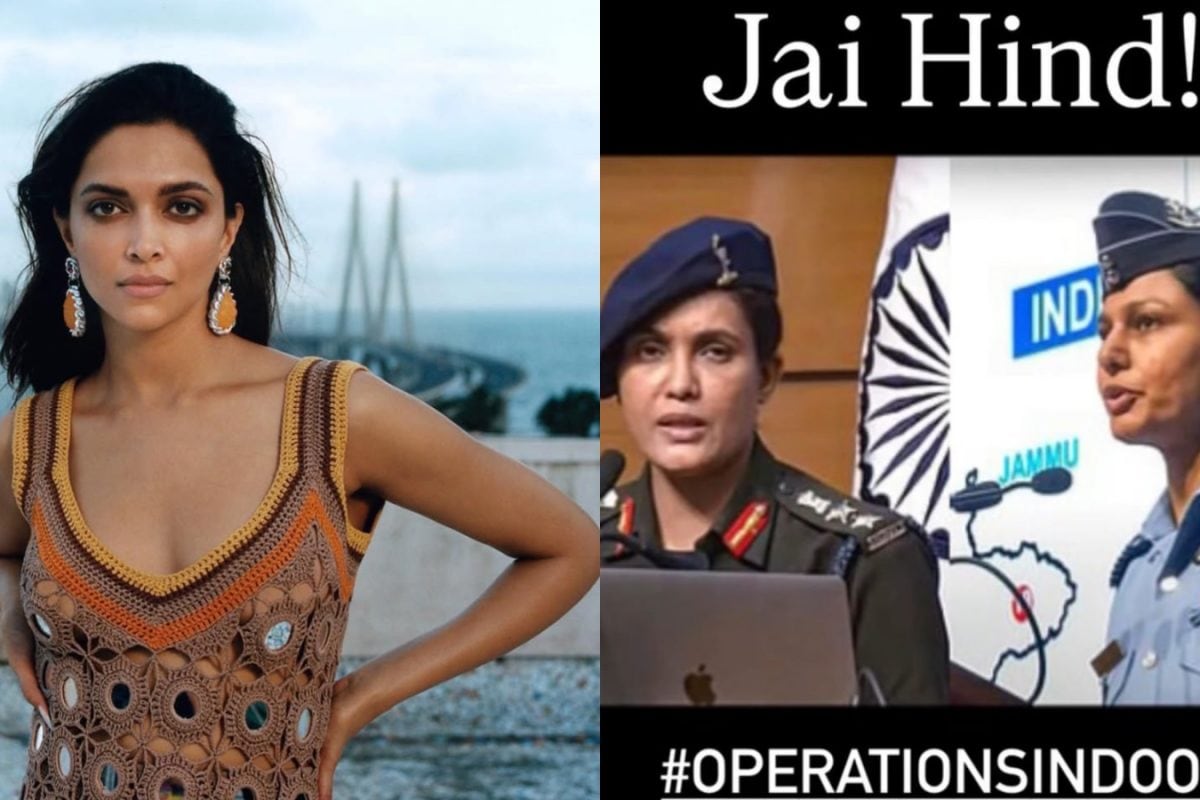

In the wake of "Operation Sindoor," the Indian Armed Forces' targeted strikes against terrorist infrastructure in Pakistan and Pakistan-occupied Kashmir, Bollywood actress Deepika Padukone has voiced her support, specifically hailing the Indian women officers who led the media briefing on the operation. The operation, which targeted nine terror camps, was a response to the deadly Pahalgam terror attack that claimed the lives of 26 people.
Padukone's social media post lauded the courage and leadership of the women officers, celebrating their role in presenting the details of the military's actions. Her post, captioned "Jai Hind," quickly gained traction, resonating with many Indians who viewed the operation as a decisive response to cross-border terrorism.
The decision to have two women officers, Colonel Sofiya Qureshi and Wing Commander Vyomika Singh, lead the briefing was seen as highly symbolic. It honored the women widowed in the Pahalgam attack and represented strength and sacrifice. The name "Operation Sindoor" itself, referring to the red vermillion worn by Hindu women to signify marriage, was chosen to humanize the victims and survivors of the Kashmir terror attacks and pay tribute to the widows.
Colonel Sofiya Qureshi, an officer from the Indian Army's Corps of Signals, has a master's degree in Biochemistry and was commissioned in 1999 from the Officers Training Academy (OTA) Chennai. She has also been involved in United Nations peacekeeping efforts, serving with the Indian mission in Congo in 2006. In 2016, she became the first woman to lead an Indian Army training contingent at Force 18, a multinational military exercise held in India.
Wing Commander Vyomika Singh is a decorated helicopter pilot in the Indian Air Force (IAF). She joined the National Cadet Corps (NCC), pursued engineering, and later received a permanent commission in the IAF's flying branch on December 18, 2019. She has flown Cheetah and Chetak helicopters in challenging terrains, including Jammu and Kashmir and the Northeast, and has participated in numerous rescue missions.
Operation Sindoor involved precision missile strikes on nine terror facilities in Pakistan and Pakistan-occupied Jammu and Kashmir. These strikes targeted key terrorist installations, including Jaish-e-Mohammad's stronghold in Bahawalpur and Lashkar-e-Taiba's base in Muridke. According to Indian authorities, the operation was carefully planned to avoid civilian casualties and damage to civilian infrastructure.
The operation has led to varied reactions, with some Pakistani officials claiming that the strikes resulted in civilian casualties, including women and children, and damage to mosques and residential areas. India has maintained that it targeted terrorist infrastructure from where attacks against India were planned and directed, exercising restraint in selecting targets and methods of execution.
The Indian Army, Indian Air Force, and the External Affairs Ministry held a joint press briefing in New Delhi regarding Operation Sindoor. Foreign Secretary Vikram Misri emphasized that India's response was measured, non-escalatory, proportionate, and responsible, aimed at dismantling terror infrastructure and preventing future cross-border attacks. Wing Commander Vyomika Singh confirmed the successful destruction of all nine targeted sites.
The strikes have heightened tensions between India and Pakistan, with both sides exchanging heavy fire along the Line of Control. India has asserted its readiness to retaliate if Pakistan escalates the situation. Meanwhile, several international airlines have begun avoiding Pakistani airspace amid the rising tensions.